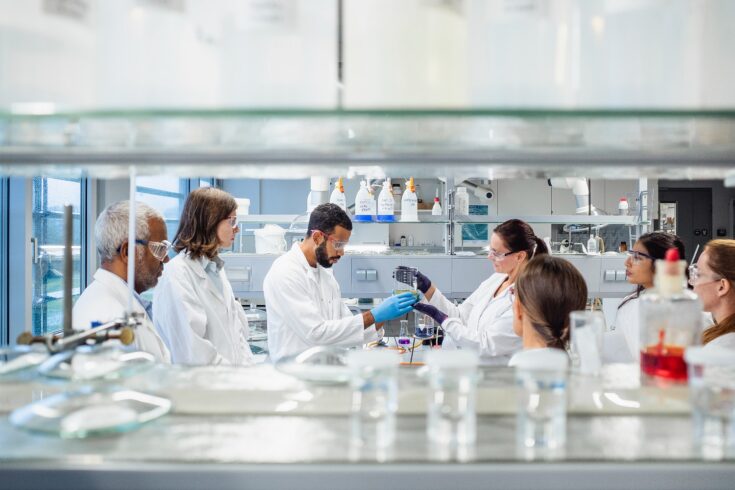I applied to become Executive Chair of the Medical Research Council (MRC) because there are so many health problems that we do not understand and cannot treat. As a practicing clinical neurologist in the NHS, I see patients with unexplained and incurable brain diseases every week in my clinic.
My own research is motivated by the problems I hear from patients and families affected by inherited neurological diseases. My research team focuses on finding the diagnosis, understanding the disease mechanisms, and developing new treatments. However, there is only so much one research group can do.
Initially chairing the MRC Neuroscience and Mental Health Board, and later as Clinical Director, I saw how MRC could catalyse new areas of research with great impact on patients. I hope to bring my experience to the future direction of MRC, so together, we can improve human health on a much greater scale than I could on my own.
Over a century of impact by MRC-supported researchers
MRC-supported researchers have made many important discoveries over the last 110 years of the council’s existence. They include:
- understanding of the structure of DNA and how it replicates
- development of monoclonal antibodies which are used to treat many diseases
- designing new tools such as cryo-electron microscopy which tell us how molecules work
I think MRC researchers have set the global standard for excellence in biomedical research into the underpinning biology of human disease. We have translated these findings into treatments that improve health and prevent disease, sometimes leading to huge commercial successes.
Although we tend to focus on the discoveries themselves, I think MRC should be most proud of the people it has supported. Creative science is done by people not machines. We have supported the career development of tens of thousands of people over the years, creating a legacy of scientific rigour that has strengthened research across the world. Though it may be difficult to trace a specific discovery back to a specific project grant, I suspect many biomedical discoveries have been made possible because of an MRC-supported researcher.
Motivated to change lives
Every Friday afternoon I do a clinic. I meet families with unexplained and inherited neurological disorders, some of which turn out to be mitochondrial diseases. These are a group of genetic conditions that affect how the power-producing engines inside our cells, called mitochondria, make energy. The research of my lab is based on questions we’ve identified in the clinic. By studying the disease mechanisms, we hope to help the families that we see. Although we can’t cure all mitochondrial diseases at present, we’ve learned a lot about the problems that patients develop, and how best to manage those.
About 10 years ago, I co-led the first randomised clinical trial for a treatment for one mitochondrial disease that causes blindness with colleagues in Germany and Canada. This led to the first and only treatment and is now in use around the world. It is enormously rewarding to know that by combining initial clinical observations with laboratory approaches, and then experimental medicine and clinical trials, we’ve had an impact on patients’ lives.
A passion for neurology and mitochondrial diseases
I can clearly remember lectures as a medical student in Newcastle from two charismatic neurologists. They explained how the brain works and how it could cause a wide range of different problems when it went wrong. I was 18 at the time. They inspired me to study the nervous system in more detail, leading to my interest in neurological diseases.
Whilst I was a junior doctor in training, I met patients with unexplained neurological conditions affecting different parts of the nervous system and other parts of the body. Working in Professor Doug Turnbull’s lab in Newcastle we were able to pin-point the genetic cause involving DNA contained within mitochondria.
At that time, mitochondrial disorders were thought to be extremely rare. In doing my PhD, we came to realise they were far more common than anybody thought. We now know they affect about 1 in 8,000 people.
Looking ahead
In the future, I think we need to stick to our core principles. We will keep supporting the world’s best researchers who are tackling important questions about the origins of human illness. In this way we will speed up early diagnosis, develop new treatments and prevent human disease globally.
UK Research and Innovation presents major opportunities for us to do this through multidisciplinary research across councils. MRC also has a pivotal role in the UK landscape, convening and facilitating research in collaboration with other funders, major charities and industry. We’ll fund people, places and projects aligned to our strategic delivery plan and enhance our position as the leading UK government funder of mechanistic research focused on human biology and disease.
There are challenges ahead, not least with the increased pressures of work and financial constraints. But we all need to remember that what we’re doing makes a real difference to people’s lives.




